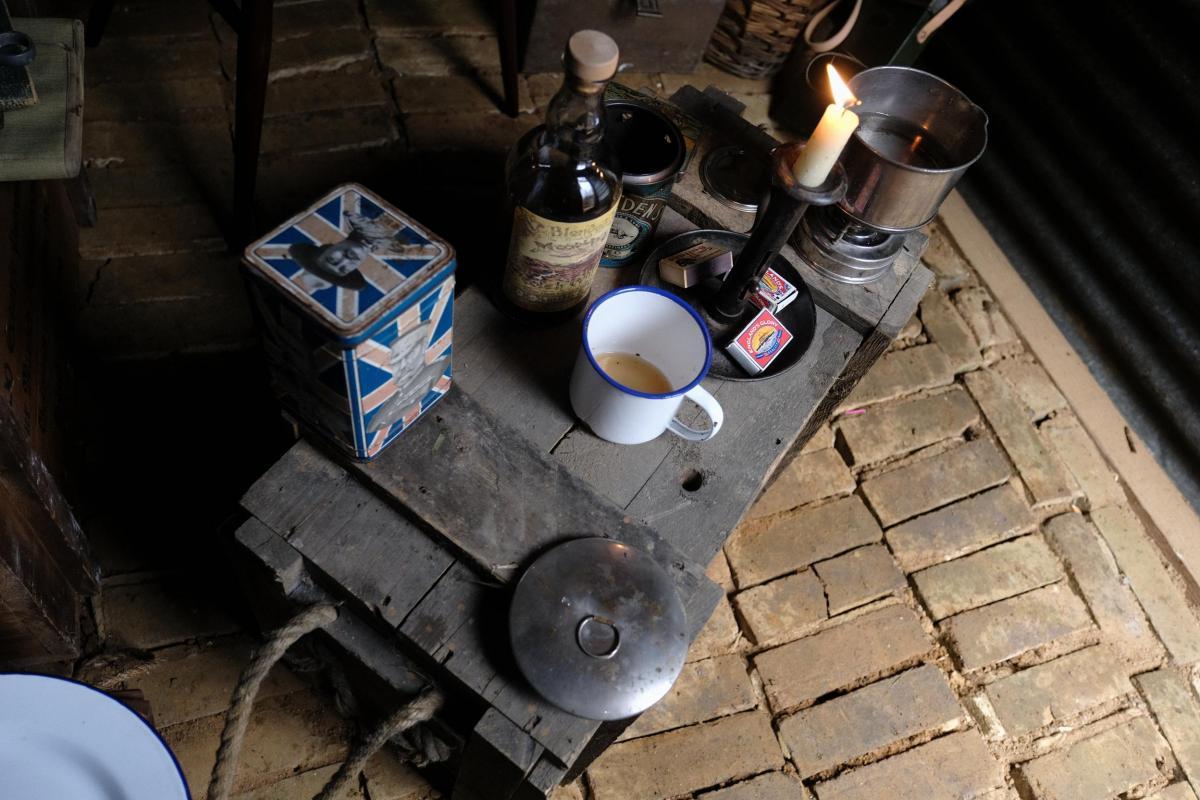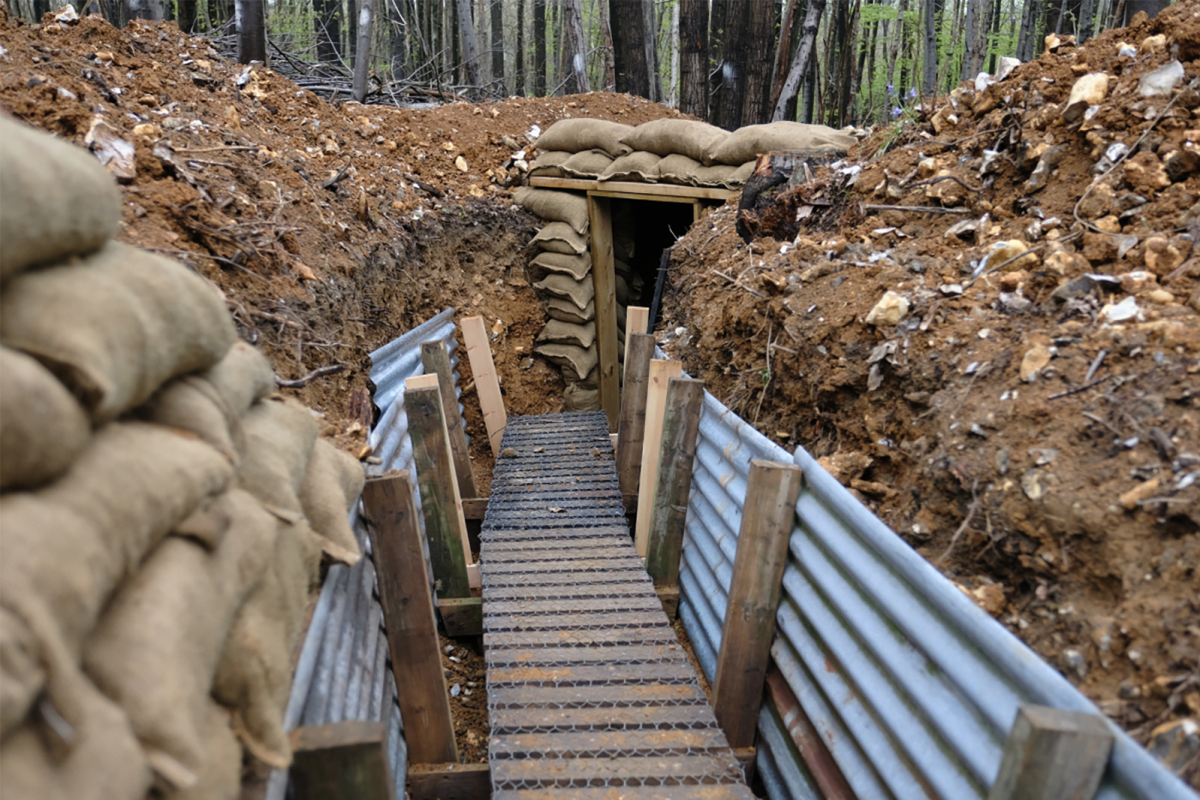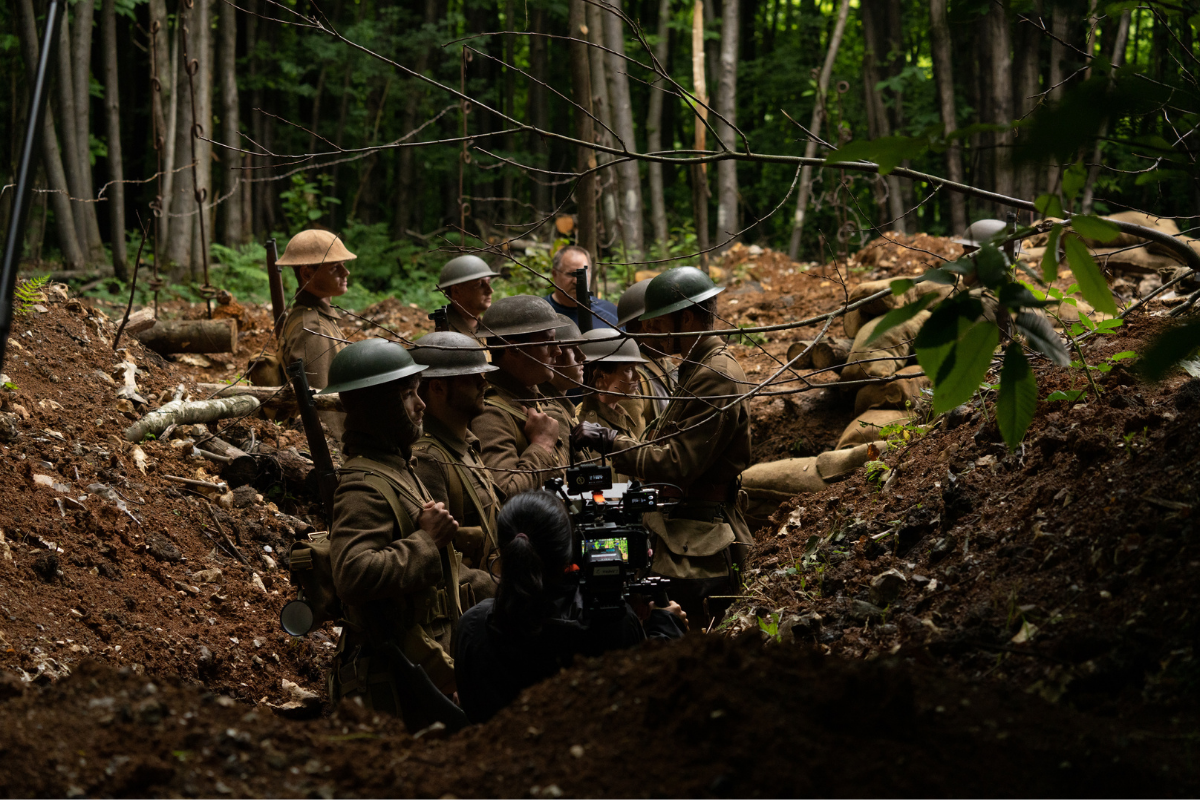Recreating History
We are a mouthful: the Centre for Experimental Military Archaeology. But don’t let that put you off. CEMA is the home of pan-historical experimentation concerning methods of military attack and defence, and of soldiers’ day-to-day lives, from the Roman period to the Second World War.
We work in collaboration with the University of Kent and Wessex Archaeology to provide research and educative experiences using cutting-edge technology, the arts, and traditional means.
If we build it, they (historians, artists, and members of the public) will come
We take something uncovered by traditional research and archaeological means and explore it at perhaps its truest function: by constructing it.
Take our set of Great War trenches, for example. Using the manuals of the Royal Engineers, archaeology, reference photographs, sketches, diagrams, and even oral testimonies we have created a visual representation of this information.



Above: recreating the past at CEMA (Credit: James Valls (left, centre) and Tommy Pengilley (right))
At an archaeological dig on the Somme, our lead historian Andy Robertshaw found a communication trench floor lined with bricks owing to the fact that materials from shelled buildings were readily available. With that in mind, we have lined the floor of our infantry shelter with bricks, not just to demonstrate this little discovery but to assess its structural integrity, flood risk, and potential fire resistance.
Speaking of fire resistance, Andy recently mentioned an interesting discovery he made: “I was finding in certain manuals and texts of the time that covering the trench boards with chicken wire would not only make them less slippery underfoot but also ‘fire resistant’. Well, as we’ve found if you put a lit brazier on a chicken-wire covered trench board it will still burn through. In the end, what I discovered was that soldiers were breaking off parts of the trench boards to use as firewood and, as we’ve found out, by nailing a chicken wire cover to them it makes them very difficult to break apart. So the term ‘fire proofing’ that was used was, in fact, a politer version of saying ‘soldier proofing’!”


Above: reconstructing trench conditions at CEMA (Credit: James Valls)
In the 21st century, history comes to you
Artists and tech experts are warmly welcomed at CEMA. Why? Because we understand not everyone can make their way down to visit us in Kent. Wessex Archaeology’s virtual reality experiences in schools across the country have been a great inspiration to us. In my 9-to-5 life, I work for a video-games company making 3D scans of real life objects, structures and buildings. As Wessex Archaeology will surely testify, technology of this calibre excites people: the possibility to see the past in three dimensions! In the coming years at CEMA, this type of informative and engaging history will form a key support to our work.

Above: filmmakers on site at CEMA (Credit: Tommy Pengilley)
In a similar fashion, filmmakers and artists are equally encouraged to use our site. Narrative-based history is perhaps one of the most powerful tools at our disposal to hook unsuspecting people who’ve yet to realise how fascinating this all can be. We have currently had three productions at CEMA and many more slated.
Un-experimental military archaeology
Based at the Kent Event Centre, Detling, early study of the CEMA area has uncovered evidence of a Roman watchtower, Saxon fortifications, and a well-preserved Norman motte-and-bailey. More than 2000 years of history have passed through this corner of England, and we aim to uncover it.
Of course, there is no way we can do it alone, and so we have turned to Wessex Archaeology with fluttering eyelashes and a hint of what may lie beneath the surface. Rest assured, as these projects take shape we will keep you informed of all that goes on.
Expect more from us and our work with Wessex Archaeology in the near future. In the meantime, head over to our website and follow us on Instagram and Facebook.
By Ross Barnwell, Creative Director, Centre for Experimental Military Archaeology (CEMA)
This Saturday, explore the Centre for Experimental Military Archaeology for yourself! As part of the Festival of Archaeology, CEMA is opening its doors.
Take a tour through the newly built replica trenches, meet knowledgeable historians and chat with the team who built the trench system. You'll also be able to discover real Great War artefacts found by Wessex Archaeology and hear stories from those who found them.
Find out lots more on the Festival of Archaeology website.

